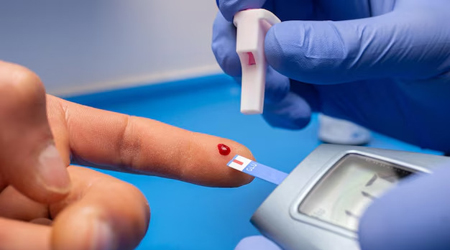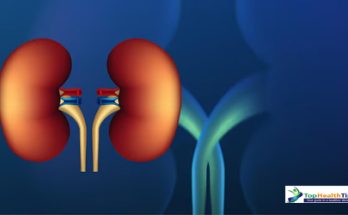Sleepiness and fatigue are common complaints among people with diabetes, but understanding why they occur and how to manage them is essential for improving quality of life. This article will explore the underlying causes of sleepiness in diabetes patients and provide strategies to combat it effectively.
Understanding the Link Between Diabetes and Sleepiness
Diabetes affects how your body processes glucose, which can lead to various health complications, including fatigue. The relationship between sleepiness and diabetes can be attributed to:
- Blood sugar imbalances
- Hormonal changes
- Medication side effects
- Sleep disorders
All these factors can contribute to feeling excessively tired during the day. Below, we delve deeper into the primary causes.
Causes of Sleepiness in Diabetes Patients
- High Blood Sugar (Hyperglycemia)
When blood sugar levels are too high, it impairs the body’s ability to utilize glucose for energy. This leads to feelings of lethargy and tiredness. Symptoms of hyperglycemia, such as frequent urination and dehydration, further exacerbate fatigue.- Symptoms: Increased thirst, blurred vision, headache, fatigue
- Management: Monitor blood sugar levels and adjust diet or medication as needed.
- Low Blood Sugar (Hypoglycemia)
Low blood sugar can also cause extreme fatigue and sleepiness. When the brain doesn’t get enough glucose, it can’t function optimally, leading to dizziness, confusion, and tiredness.- Symptoms: Shakiness, sweating, confusion, irritability
- Management: Carry snacks rich in carbohydrates to quickly raise blood sugar levels when needed.
- Diabetes Medications
Certain diabetes medications, such as insulin or sulfonylureas, can lower blood sugar levels too much, leading to hypoglycemia and, subsequently, fatigue. Some drugs may also cause dehydration, leading to tiredness.- Examples: Metformin, insulin, sulfonylureas
- Management: Discuss any side effects with your healthcare provider to adjust the medication or dosage.
- Insulin Resistance
Insulin resistance means your body doesn’t respond well to insulin, leading to fluctuating blood sugar levels. This can make you feel fatigued, as your body struggles to convert glucose into usable energy.- Symptoms: Persistent hunger, weight gain, frequent urination
- Management: Exercise regularly, maintain a healthy weight, and follow a balanced diet to improve insulin sensitivity.
- Sleep Apnea
Sleep apnea is more common in people with diabetes, particularly those who are overweight. This sleep disorder causes breathing interruptions during sleep, leading to poor-quality rest and excessive daytime sleepiness.- Symptoms: Loud snoring, gasping for air during sleep, morning headaches, daytime fatigue
- Management: Weight loss, using a CPAP machine, and avoiding alcohol or sedatives before bed can improve sleep quality.
- Chronic Fatigue Syndrome (CFS)
Some diabetes patients may develop chronic fatigue syndrome, a condition characterized by extreme tiredness that doesn’t improve with rest. CFS can be linked to the immune system’s response to high blood sugar levels and inflammation.- Symptoms: Muscle pain, memory issues, difficulty concentrating
- Management: Cognitive behavioral therapy (CBT) and regular physical activity may help manage symptoms.



Managing Sleepiness in Diabetes
Fortunately, several lifestyle changes and strategies can help combat excessive tiredness and improve energy levels for diabetes patients.
- Balanced Blood Sugar Levels
Maintaining consistent blood sugar levels is crucial for avoiding fatigue. This includes:- Eating regular meals with a balance of carbohydrates, proteins, and fats
- Monitoring blood sugar levels frequently
- Taking medication as prescribed
- Get Adequate Sleep
Poor sleep habits can worsen feelings of sleepiness. Aim for 7–9 hours of quality sleep each night to restore energy.- Tips for Better Sleep:
- Keep a consistent sleep schedule
- Create a relaxing bedtime routine
- Avoid caffeine and large meals close to bedtime
- Tips for Better Sleep:
- Stay Active
Regular physical activity improves insulin sensitivity and boosts energy levels. Even light activities like walking can help combat fatigue.- Exercises for Energy:
- Walking
- Swimming
- Yoga
- Strength training
- Exercises for Energy:
- Stay Hydrated
Dehydration can contribute to feelings of tiredness. Aim to drink plenty of water throughout the day, especially if you have high blood sugar levels. - Eat Energy-Boosting Foods
Choosing the right foods can make a big difference in maintaining energy levels. Focus on foods with a low glycemic index (GI) to keep blood sugar levels stable.- Energy-Boosting Foods:
- Whole grains (e.g., oats, brown rice)
- Leafy green vegetables (e.g., spinach, kale)
- Lean proteins (e.g., chicken, fish, beans)
- Nuts and seeds
- Energy-Boosting Foods:
- Manage Stress
Chronic stress can increase blood sugar levels, leading to fatigue. Implement stress-management techniques like meditation, deep breathing, or engaging in hobbies to keep stress in check.

When to Seek Medical Help
If fatigue and sleepiness become persistent, it’s essential to talk to a healthcare professional. You may need adjustments in your diabetes management plan or further testing to rule out other underlying conditions, such as thyroid issues or anemia.
- Red Flags:
- Persistent daytime sleepiness
- Difficulty concentrating
- Mood swings
- Unexplained weight loss or gain
Conclusion
Sleepiness in diabetes patients is often linked to blood sugar imbalances, medication side effects, and sleep disorders like sleep apnea. By adopting a balanced lifestyle that includes a nutritious diet, regular exercise, and proper sleep hygiene, most patients can manage their symptoms effectively. If fatigue persists, seeking medical advice can help identify additional factors contributing to your sleepiness and guide you toward a tailored solution.
Related posts for Disease & Remedy>>>
References
- American Diabetes Association. (2021). Diabetes and Fatigue. Retrieved from [ADA Website]
- National Institute of Diabetes and Digestive and Kidney Diseases. (2020). Symptoms & Causes of Diabetes. Retrieved from [NIDDK Website]
- Johns Hopkins Medicine. (2022). Managing Fatigue in Diabetes Patients. Retrieved from [Johns Hopkins Medicine]
- National Sleep Foundation. (2023). Diabetes and Sleep Apnea. Retrieved from [National Sleep Foundation]
- Mayo Clinic. (2021). Hypoglycemia Symptoms and Causes. Retrieved from [Mayo Clinic Website]




